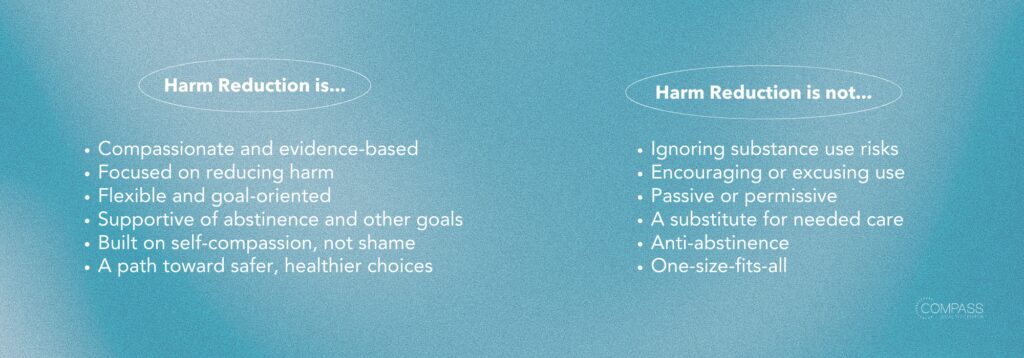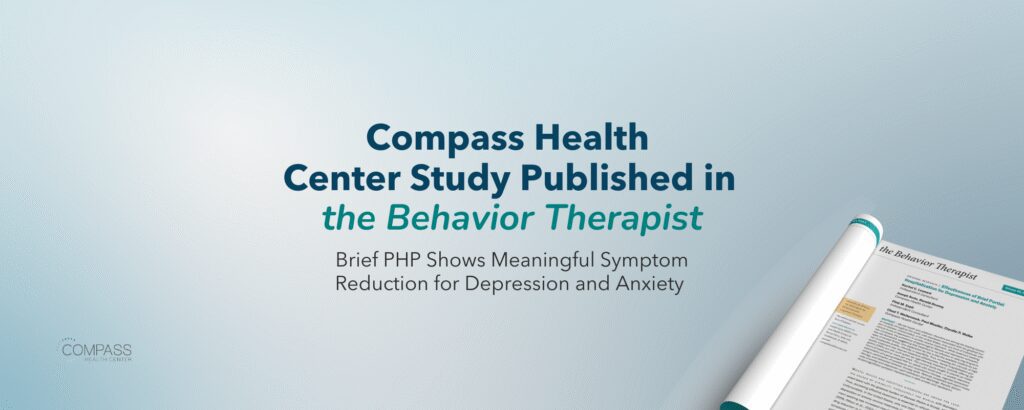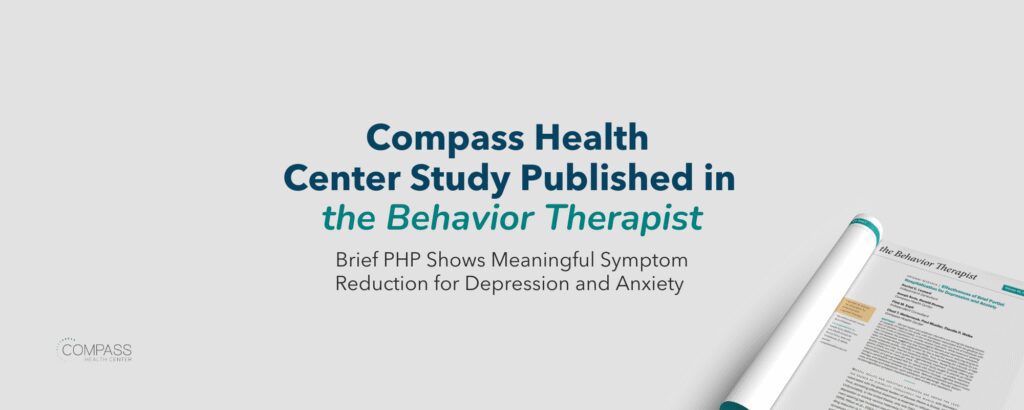
What is Harm Reduction? A Guide to Safer Strategies for Sustainable Substance Use Treatment
What is Harm Reduction?
Harm reduction is both a set of practical strategies to reduce the negative consequences of substance use and a philosophical framework grounded in respect, compassion, and evidence-based care. It supports individuals regardless of their goals—whether abstinence, moderation, or safer use—and creates space for autonomy, exploration, and self-acceptance.
At Compass Health Center, we use a harm reduction model in our integrated treatment for mental health and substance use because we believe in meeting people where they are. Our goal is to offer flexible, person-centered care that builds trust, enhances self-efficacy, and promotes long-term wellness. In this guide, we’ll define harm reduction principles, explore key strategies, and share how it fits into a comprehensive approach for co-occurring disorders treatment across all ages.
Understanding Harm Reduction: Core Principles
Harm reduction strategies are grounded in the acceptance that substance use is a reality in our world and seek to minimize its harmful effects rather than ignore or condemn it. It recognizes that substance use is complex and exists along a continuum of risk, focusing on evidence-based strategies to enhance safety. Core to this approach is respect for autonomy, human dignity, and non-judgmental care, along with a commitment to reducing stigma.
Harm reduction principles prioritize improving quality of life, empowering individuals in their recovery and fostering community. It emphasizes engagement, connection, and safety as foundational to sustainable change, while acknowledging the social inequalities that shape vulnerability and capacity for transformation. Departing from rigid, prescriptive models, harm reduction is rooted in a social justice and inclusive framework—and the evidence shows it works. Research supports that this approach improves treatment completion rates, enhances quality of life, and reduces harmful outcomes such as interpersonal conflict, risky behaviors like DUI, and health complications.

What Harm Reduction Is—And What It’s Not
What It Is:
Harm reduction is a compassionate, evidence-based approach focused on practical strategies to reduce negative consequences. It avoids punishment and shame, instead offering flexible, individualized support that adapts to a person’s changing motivations, goals, and circumstances. For many, it provides space to explore ambivalence and make incremental changes; for some, it can serve as a bridge to more intensive treatment or even abstinence—if and when that becomes their goal.
Additionally, harm reduction principles recognize that relapses are part of recovery. At Compass, we talk about relapse before it happens. We work with individuals on relapse prevention strategies, such as identifying triggers and managing urges and cravings, and we work on post-relapse strategies to help get people back on track quicker if it does occur.
A major piece of this is reduce the shame and guilt and around relapse. We know from the research that shame does not promote behavior change. Rather than trying to assign blame, we help patients identify the function of the use, the triggers that led up to it, and ways to prepare and cope differently in the future. This reflects the normal, non-linear pathway to recovery and creates space for self-compassion.
What It’s Not:
Harm reduction does not ignore the real risks of substance use, nor does it encourage or promote it. It is not a passive or permissive approach, nor is it a substitute for recovery or higher levels of care when needed. Rather, it challenges individuals to move beyond their comfort zones and make meaningful progress toward reduced risk and improved well-being.
While Compass does not require abstinence, it does require a commitment to reduce or change one’s relationship with substances in some capacity. Harm reduction is also not mutually exclusive with abstinence, rather in includes all substance use goals, including abstinence. Many of our patients are committed to 100% abstinence and we fully support that as it is their identified goal. As a vital part of the care continuum, harm reduction supports change at any stage and in any direction that enhances safety and health.

Common Harm Reduction Strategies
You may already use harm reduction in everyday life—wearing a seatbelt, applying sunscreen, or using a helmet. The goal isn’t to avoid risk altogether, but to make everyday activities safer. The same principle applies to substance use.
Common harm reduction strategies include:
- Education on safer use practices
- Overdose prevention and naloxone access
- Medication-assisted treatment (MAT) with buprenorphine, methadone, or naltrexone
- Fentanyl test strips and drug-checking resources
- Safer consumption spaces (where legally permitted)
- Integrated care for co-occurring mental health and substance use disorders
At Compass Health Center, harm reduction is woven into daily practice:
- Individualized goals such as reducing use or avoiding use during periods of suicidal ideation
- Abstaining from use while in programming
- Lifestyle interventions to support holistic wellness (nutrition, hydration, sleep)
- Supportive conversations around motivation and triggers
- Flexible treatment pathways including both virtual and in-person mental health care

Imagining One Patient’s Journey: Hypothetical Example
Patient X is a 21-year college student who has found that his drinking has spiraled a bit out of control and is exacerbating the anxiety and depression he’s struggled with for years. His grades are dropping, he’s missing classes, and overall, his self-esteem has plummeted. He knows something must change, but he can’t imagine giving up alcohol completely based on his social life and the use of his peers around him. He feels like giving up drinking completely would ostracize him, leave him isolated and worsen his mental health symptoms even more.
He starts the Mental Health & Substance Use Treatment Program at Compass and learns about the harm reduction approach. He works with his primary therapist to track his mood and his use and builds insight into the connection between his use and his anxiety and depression symptoms. He learns effective ways to manage his depression and anxiety including thought challenging, mindfulness, and several other coping skills. This in of itself reduces his urge to drink.
Lastly, he identifies what he considers a safer limit on his alcohol use and limits himself to 2-3 drinks per occasion 2x/week and commits to not drinking alone or when he’s feeling significantly depressed. This cuts his use drastically, and almost immediately he notices improved sleep and energy levels. He’s no longer missing classes, he feels more able to stay on top of his homework, and he still feels a part of social events with his friend that involve some alcohol consumption.
For this patient, this is a huge success. He feels better, his quality of life is improved, and his functioning has improved. By some traditional models, this progress may be minimized by lack of abstinence, but when we look at the context this is a huge victory to celebrate.
Why Harm Reduction Supports Long-Term Engagement and Health
Harm reduction fosters long-term engagement by building trust between patients and providers and meeting people where they are—both physically and emotionally. This approach increases the likelihood of continued participation in care and opens the door to safer behaviors.
By focusing on reducing overdose rates, mitigating serious health risks, and preventing long-term consequences in people’s lives (e.g., job loss, legal consequences, broken relationships), harm reduction not only improves individual outcomes but also contributes to public health. It can also serve as a steppingstone toward abstinence-based treatment for those who eventually choose that path, while never requiring it. Importantly, harm reduction acknowledges the complex roles of trauma, mental health, and systemic barriers in shaping substance use patterns, offering a more compassionate and effective framework for care.

Compass Health Center’s Approach to Harm Reduction and Integrated Care
At Compass Health Center, harm reduction is seamlessly integrated into our Mental Health & Substance Use (MHSU) Programs. Our approach is rooted in flexible, patient-centered treatment planning that combines evidence-based therapy, medication management, and actionable coping skills, all tailored to individual needs.
We utilize a multidisciplinary team—comprising individual therapists, prescribers, family therapists, and resource planners—to provide comprehensive care that supports sustainable progress. This integrated model is especially effective in addressing co-occurring mental health conditions, ensuring that individuals receive coordinated support for both substance use and broader emotional health challenges.
Key Takeaways for Families, Patients, and Providers
Harm reduction is a compassionate, evidence-based approach grounded in safety, dignity, and sustainable health—not in giving up on recovery. It supports individuals in staying engaged with care, even when abstinence is not the immediate goal. For families, patients, and providers, it’s essential to recognize that each person’s recovery journey is unique and often non-linear. Harm reduction makes space for this complexity, offering flexible pathways to progress that honor each individual’s needs, goals, and circumstances.

Learning More and Taking the Next Step
If you or someone you care about is struggling with the dual challenges of mental health and substance use, know that support is available—and that it doesn’t have to follow a rigid or linear path. At Compass Health Center, we understand that recovery looks different for everyone. Our mental health and substance use PHP and IOP programs offer comprehensive care for co-occurring disorders in a compassionate, flexible environment. Whether you’re looking for virtual or in-person mental health care, or programs for teens, young adults, or adults, we are here to help.”
Taking the first step can feel overwhelming, but it doesn’t have to be. Reach out to learn more about our programs, explore the right fit for you or your loved one, or schedule a confidential assessment. At Compass, we believe in meeting people where they are—and helping them move forward from there.


